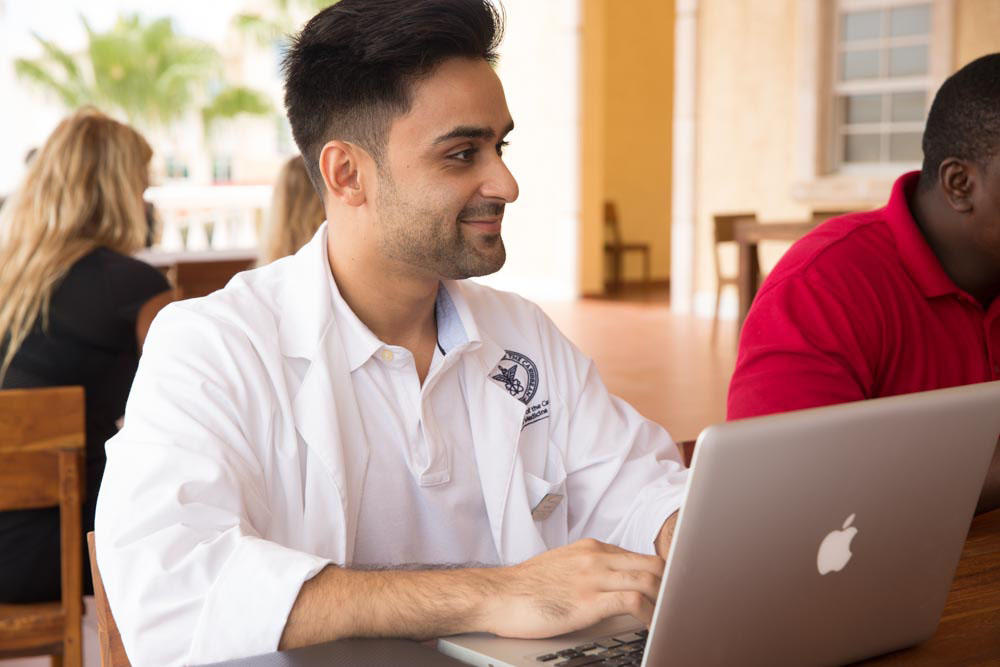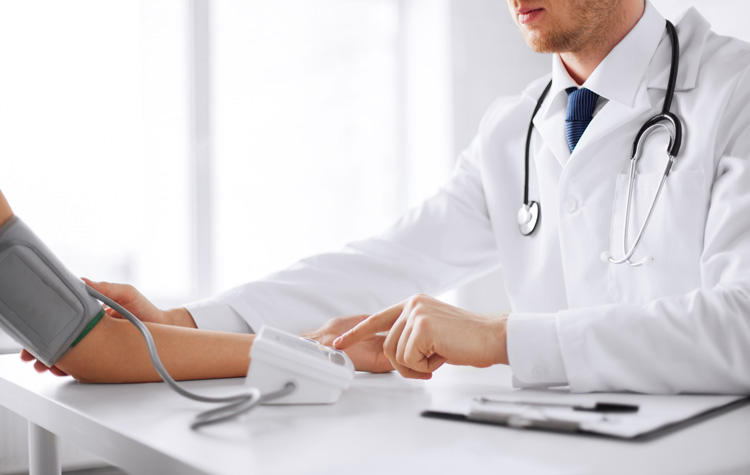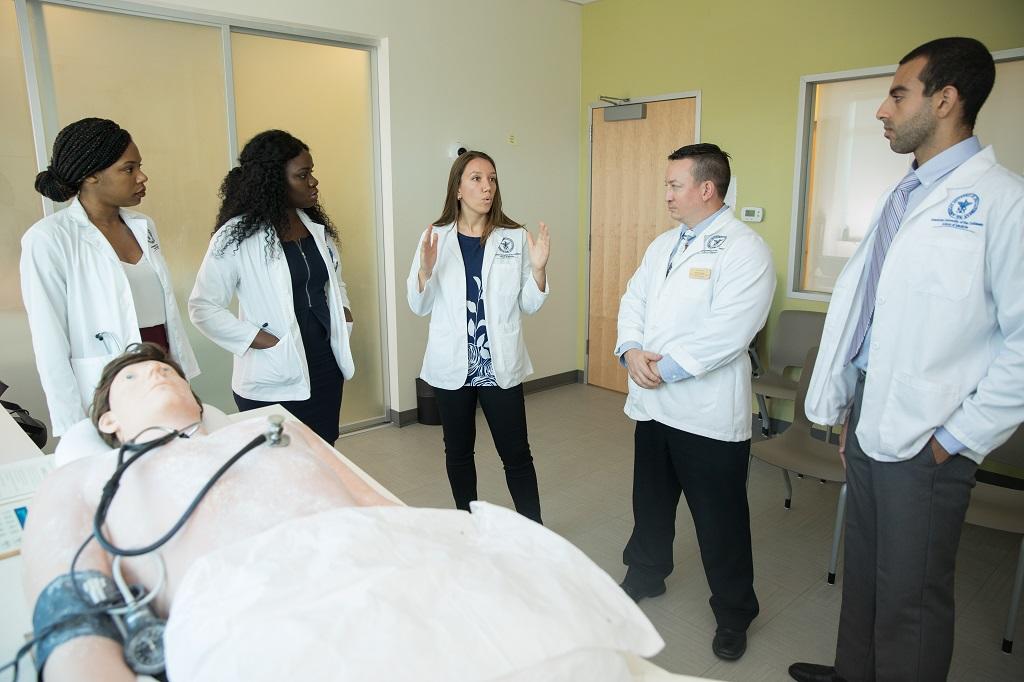Students interested in a career as a physician know that going to medical school is the first daunting step. Finding the best possible medical school—or the best individual fit—can be an exhausting process. There are many options to consider, and many factors that influence those options.
For many students, the options may lie among the sunny Caribbean Islands. There are about 60 medical schools scattered about the Caribbean, but they are not all created equal. To find the best Caribbean medical school—and the best fit—students should find answers to some key questions:
- Is the medical school accredited?
- Does the school provide support and research possibilities?
- What percentage of students pass the first exam for medical licensing?
- What are the options for clinical training?
- What percentage of students move on to medical residencies?
- What percentage of students graduate?
With answers to these questions, students will have a much better understanding of what a Caribbean med school offers—and which is the best option.
ACCREDITATION
The first thing prospective students should learn is if a Caribbean medical school is accredited—meaning the school meets the functional and structural standards for medical education in their particular region. They should also make sure that the accreditation meets the standards of the Liaison Committee on Medical Education (LCME), the accreditation authority for medical schools in the United States and Canada that provide Doctor of Medicine (MD) degrees.
Students of accredited top Caribbean medical schools—such as the American University of the Caribbean School of Medicine (AUC)*—enjoy the same privileges as students of medical schools in the United States and Canada. They may qualify for federal student loans through the U.S. Department of Education. They may register with the Educational Commission for Foreign Medical Graduates® (ECFMG®) to begin the United States Medical Licensing Examination® (USMLE®) process. They may also move on to medical residencies accredited by the Accreditation Council for Graduate Medical Education (ACGME), the residency authority in the United States and Canada.
AUC, located in St. Maarten, the Dutch side of the island of St. Maarten, is accredited by the Accreditation Commission on Colleges of Medicine (ACCM)—an authority recognized by the U.S. National Committee on Foreign Medical Education and Accreditation (NCFMEA) as meeting LCME standards. The ACCM is also recognized by the international authority on medical school standards, the World Federation for Medical Education (WFME). The ACCM accredits eight top Caribbean medical schools and one in the Middle Eastern nation of Jordan. It has accredited AUC since 1995.
The ACCM is not the only accreditation authority in the Caribbean Islands. Schools among the member states of the Caribbean Community are accredited by the Caribbean Accreditation Authority for Education in Medicine and other Health Professionals (CAAM-HP). (To see if a particular Caribbean medical school’s accreditation authority meets U.S. and international standards, check the NCFMEA and WFME approval lists.)
SUPPORT AND RESEARCH
After ensuring proper accreditation, students should learn what support a Caribbean medical school gives its students, as well as what research opportunities it offers. Going to medical school is not easy, and students may need academic or clinical training support, as well as help with emotional, social, or physical and mental health issues. They may also need help with housing, balancing family and school obligations, or managing financial aid and residency matches. Schools with less student support tend to see lower rates of graduation as well as a generally lower overall student morale.
Student support at AUC—and some welcome diversion—may come from extracurricular activities and clubs and organizations. Student groups may explore St. Maarten and participate in diving, soccer, or other activities. There are also organizations specifically for Asian, Black, Canadian, Christian, Jewish, Latino, and Muslim students.
Special interest and teaching assistant groups cover such topics as anatomy, cardiology, global health, neurology, obstetrics and gynecology, oncology, pathology, pediatrics, psychiatry, radiology, and surgery, as well as disaster, emergency, family, and sports medicine.
There is an Honor and Service Society at AUC that rewards academic excellence and community involvement, and a Student Judiciary Committee (SJC) that settles student disputes or professional or ethical issues related to the AUC Honor Code. And when students are ready, the Office of Career Advisement (OCA) helps prepare them for residency—the main goal for Caribbean medical school graduates. The American Medical Student Association (AMSA) and the American Medical Women's Association (AMWA) help educate and inform AUC students and connect them with other medical students and professionals around the world.
At AUC, students heighten their appreciation of the scientific process—and fatten the all-important Medical School Performance Evaluation (MSPE) for residency—through research opportunities in such fields as anatomy, genetics, microbiology, and pathology. Research missions take place locally in St. Maarten, but they may also take place on other Caribbean islands or in mainland Central, South, or North America. Every year, AUC students publish work or present research studies and findings at conferences and meetings around the world.
PASSING THE USMLE STEP 1
At the end of the first two years of medical school, students take the USMLE Step 1, also known as “The Boards”—the first official test of the medical licensure process. A medical school may measure its success by the success of its students on this first USMLE exam (there are two later tests before licensure), and AUC students do well.
In 2018, the percentage of AUC students who passed the initial step of the USMLE on the first attempt (94 percent) was far higher than the average percentage for students from other non-U.S. schools (78 percent) and close to the success rate of students enrolled in U.S. and Canadian medical schools (96 percent). It is a good thing that AUC students do so well on the USMLE Step 1—they must pass it to begin clinical training.
CLINICAL TRAINING OPPORTUNITIES
The last two years of medical school usually include the clerkship, or the clinical portion of the training. Most clinical training takes place in teaching hospitals. It provides supervised experience working with patients and gives students an idea of which medical specialty appeals to them most. During clinical rotations, students are part of a medical team, led by an attending physician, that includes residents (doctors-in-training) and interns (first-year residents).
For AUC students, clinical training takes place at hospitals with accredited residency programs in the United States or in the United Kingdom. The 17 AUC-affiliated hospital programs spread throughout the United States are ACGME- or LCME-approved. The General Medical Council (GMC) accredits the six AUC-affiliated hospitals in the United Kingdom. Students preparing for a global health career may also do parts of their rotations in the Dominican Republic, India, Uganda, Vietnam, or Zimbabwe.
AUC’s Office of Undergraduate Medical Education Student Services provide advice and support to students during the critical clinical rotations as well as during the residency application and matching process. It also prepares students for the second round of the USMLE, which students must pass to earn ECFMG certification and to graduate.
RESIDENCY PLACEMENT
In the fourth and final year of medical school, students apply to residencies and go to residency interviews. Students then create a “rank-order list” of preferred residency programs which is matched against a similar list created by the programs. In late March—on “Match Day”—students learn if they have been matched with an ACGME-accredited residency program to fill post-graduate training positions.
An important attribute to be aware of are Caribbean medical school residency placement rates. AUC has a strong history of placing graduating students in internal medicine or specialty residencies. In 2020, 92 percent of AUC graduates earned residencies throughout the United States and Canada.
WHY GO TO A CARIBBEAN MEDICAL SCHOOL?
Many students choose Caribbean medical schools because they offer opportunities to study medicine to a larger percentage of applicants. This does not mean AUC is “easy” to get into.
The higher acceptance rate—which is common to Caribbean medical schools—is produced by smaller application pools for larger numbers of seats, as well as more holistic approaches to admissions. Holistic admission considers an applicant as a whole person rather than a mere set of grades and scores. This approach considers a student’s adaptability, critical judgment, intellectual and social maturity, life experiences, and volunteer work, as well as graduate school performance when applicable.
A holistic approach does not discount grades and test scores, but it does allow for more leniency in academic performance. Students who may have missed the cut on U.S. medical schools—where matriculants have a mean undergraduate grade point average (GPA) of 3.73 (out of 4.0) and an average Medical College Admission Test (MCAT) score of 511.5—may have a chance at a Caribbean school where the student averages are slightly lower.
WHAT ARE THE BEST CARIBBEAN MEDICAL SCHOOLS?
So what are the Best Caribbean Medical Schools? Caribbean medical schools that have proved their worth through accreditation, student support, USMLE success, clinical rotations, and high residency placement and graduation rates may consider themselves the cream of the crop. While official Caribbean medical schools ranking is a rather subjective process, the factors and statistics show that AUC is among the best the Caribbean has to offer.
The American University of the Caribbean School of Medicine trains tomorrow’s physicians, whose service to their communities and their patients is enhanced by international learning experiences, a diverse learning community, and an emphasis on social accountability and engagement. Take the next step toward becoming a physician: apply for admission to AUC.
Related resources:
- AUC School of Medicine Accreditation
- AUC School of Medicine Statistics
- Clinical Rotations in the US & UK
- Why Go to Med School in the Caribbean?
*AUC is accredited through 2021 by the Accreditation Commission on Colleges of Medicine (ACCM), which is the accreditor used by the country of St. Maarten.
The United States Department of Education, via the National Committee on Foreign Medical Education and Accreditation (NCFMEA), reviews the standards that countries use to accredit medical schools. The NCFMEA has determined that the ACCM’s accreditation standards are comparable to those set by the Liaison Committee on Medical Education (LCME), which accredits medical education programs in the United States.




